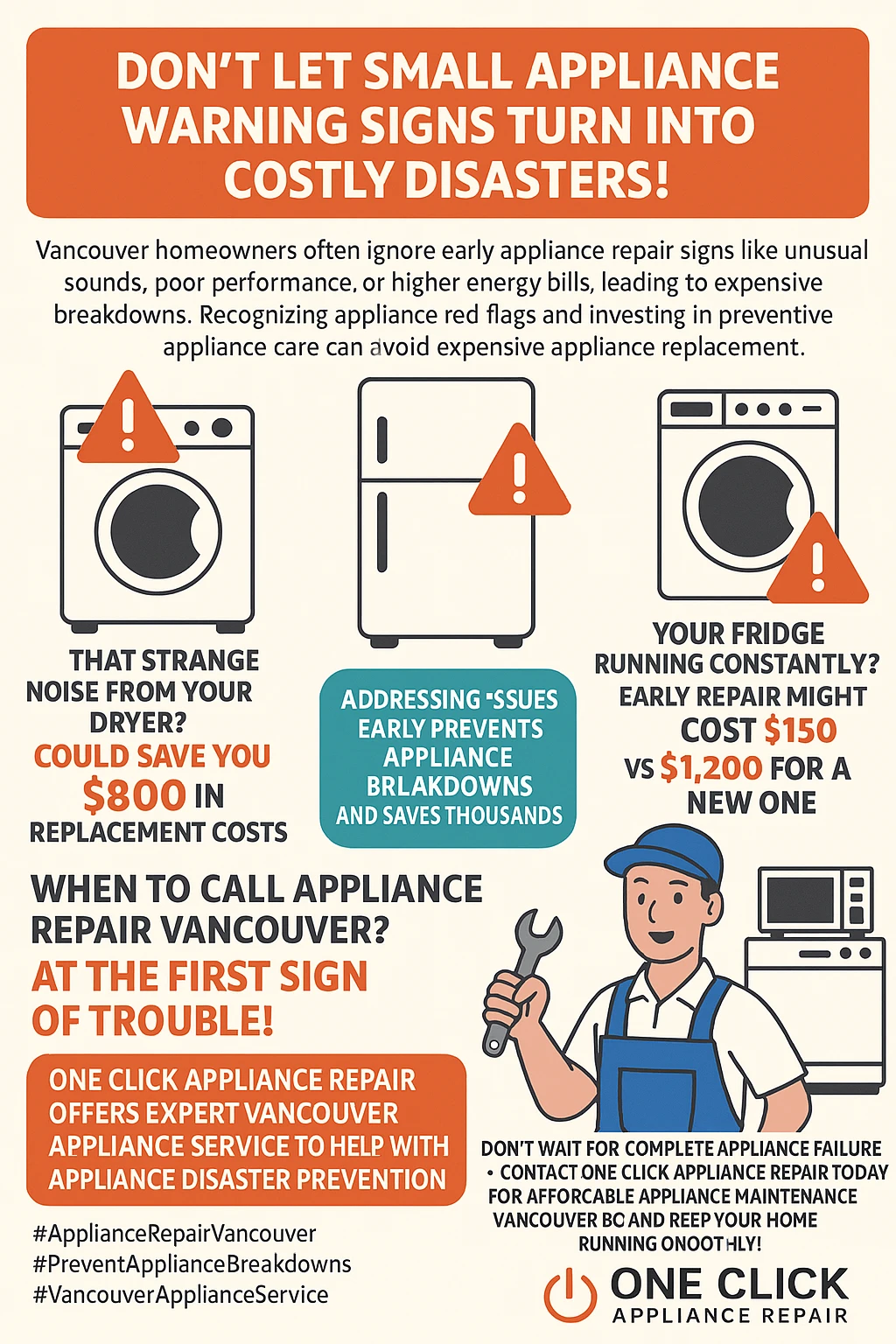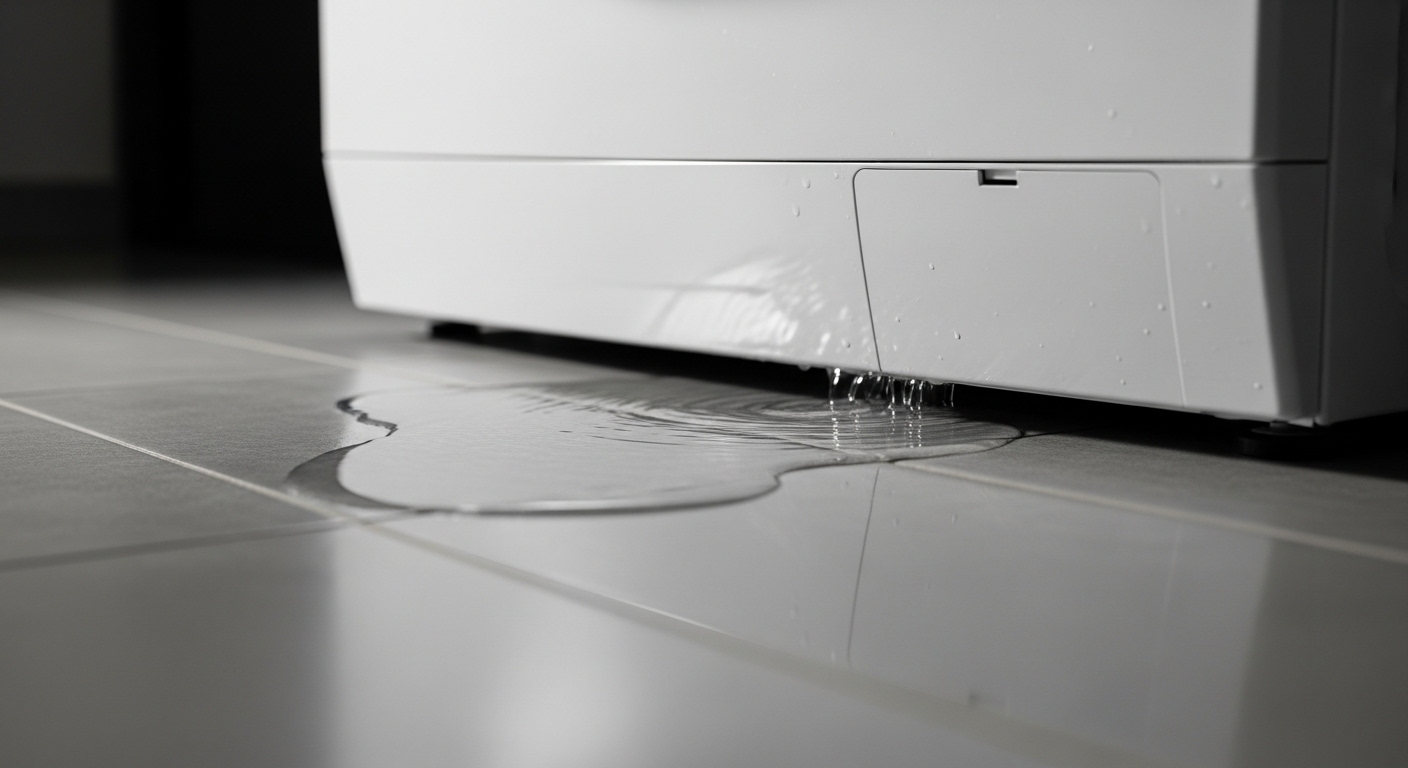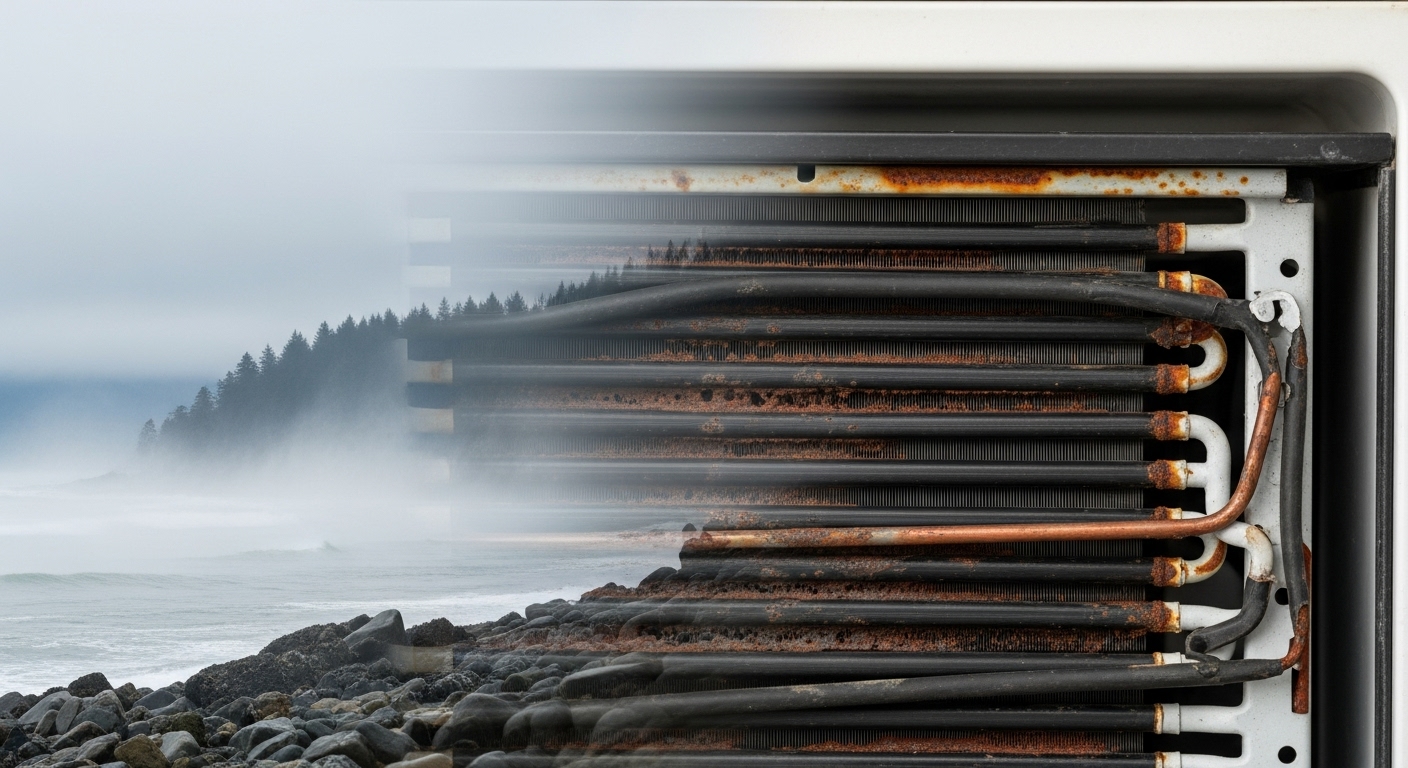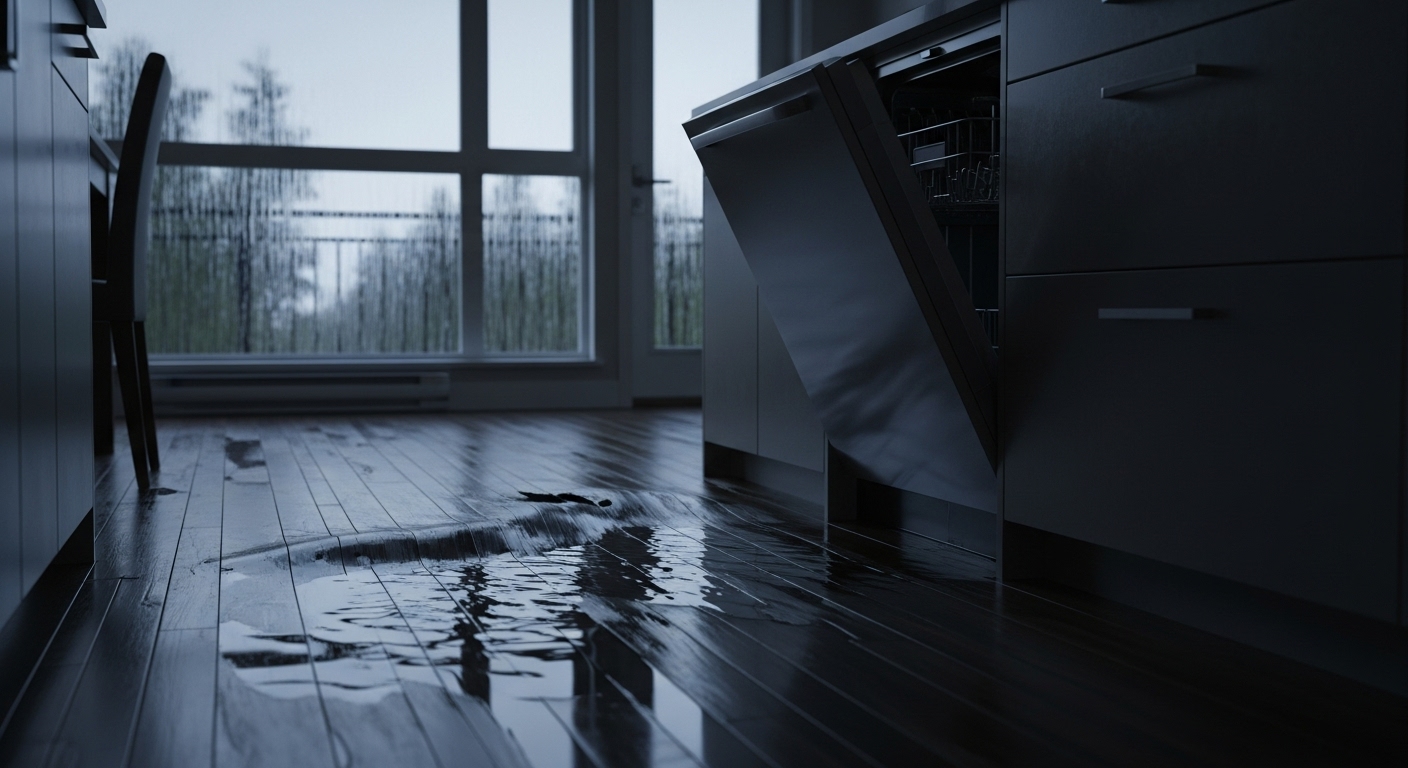The Hidden Costs of Ignoring Appliance Warning Signs: What Vancouver Homeowners Pay When Small Problems Become Big Disasters
Dealing with strange noises from your refrigerator or mysterious water puddles under your washing machine? These seemingly minor issues could be costing you thousands in hidden damage that most Vancouver homeowners never see coming.
Picture this: it’s a typical rainy Vancouver morning when you notice your dishwasher making a weird grinding sound. You figure it’s just getting older and decide to ignore it for now – after all, it still cleans dishes, right? Fast forward three months, and you’re facing a flooded kitchen, warped hardwood floors, and a repair bill that makes your mortgage payment look reasonable. This exact scenario plays out in hundreds of Vancouver homes every year, and it’s completely preventable. Living in Vancouver means our appliances face unique challenges that most other cities don’t deal with. Our coastal climate, with its salt air and constant humidity, combined with those notorious freeze-thaw cycles, creates the perfect storm for appliance problems. What makes this even trickier is that many warning signs start small and subtle – a slightly louder hum from the fridge, a dishwasher that takes an extra minute to drain, or clothes that come out of the dryer still slightly damp. These minor annoyances are actually your appliances crying out for help before they give up entirely.
I learned this lesson the hard way when my seemingly healthy washing machine decided to have a complete meltdown during a dinner party, flooding my basement and requiring emergency water extraction at 11 PM on a Saturday. The repair technician later told me that the warning signs had been there for weeks – I just didn’t know what to look for. That experience taught me that understanding appliance warning signs isn’t just about convenience; it’s about protecting your home, your wallet, and your sanity.
Key Outtakes:
- Ignoring early appliance warning signs can escalate repair costs from $195-500 to complete replacement costs exceeding $1,000 plus installation and disposal fees
- Vancouver’s freeze-thaw cycles and coastal humidity create unique stresses that cause appliances to fail 40% faster than in drier climates
- Water damage from ignored appliance leaks averages $2,800 for minor incidents but can reach $20,000 for major flooding, potentially dropping property values by up to 30%
- Professional maintenance plans cost around $150 annually but can prevent 80% of common failures while extending appliance lifespan by up to 40%
- Insurance companies may deny claims for water damage from “predictable” appliance failures that showed clear warning signs

The Five Critical Appliance Warning Signs Vancouver Homeowners Miss
Understanding the early warning signs your appliances are sending can mean the difference between a simple repair and a home disaster. These signals often start subtly, which is why so many homeowners miss them until it’s too late. Recognizing these patterns early allows you to address problems when they’re still manageable and affordable, rather than waiting for complete system failure.
Unusual noises represent one of the most common early warning signs that something’s going wrong inside your appliances. Your refrigerator should produce a gentle, steady hum when the compressor runs, but if you start hearing grinding, banging, or clicking sounds, worn-out parts or installation issues are likely developing. A dishwasher making grinding noises might indicate problems with the food disposal system or pump assembly, while washing machines that bang during spin cycles could signal suspension problems or unbalanced loads that will worsen over time. These sounds often start quietly and gradually increase in intensity, making them easy to dismiss initially.
Persistent error codes appearing on modern appliance displays aren’t just random technical glitches – they’re specific diagnostic messages indicating internal system problems. When your appliance repeatedly shows the same error code despite resets or basic troubleshooting, professional diagnosis becomes essential for preventing more serious failures. These codes often indicate issues with sensors, electrical components, or mechanical systems that require specialized knowledge to repair properly. Ignoring error codes typically leads to complete system failures that cost significantly more than addressing the underlying problem early.
Excessive energy consumption without increased usage patterns signals that your appliances are working much harder than necessary to maintain performance. This overwork typically indicates failing components, poor maintenance, or developing mechanical problems that force systems to run longer or more frequently. You might notice higher utility bills despite similar usage patterns, or appliances that seem to run constantly rather than cycling on and off normally. This inefficiency not only costs money immediately through higher energy bills but also accelerates wear on other components throughout the system.
Water leakage represents perhaps the most dangerous warning sign because it can cause extensive structural damage long before the appliance completely fails.  Even small leaks under refrigerators, around washing machine connections, or beneath dishwashers can rot subfloors, damage cabinet bases, and create ideal conditions for mold growth in Vancouver’s humid climate. Many homeowners discover these leaks only when damage becomes visible, but regular inspection around appliance bases can catch problems early. Water stains, musty odors, or slightly warped flooring near appliances often indicate hidden moisture problems.
Even small leaks under refrigerators, around washing machine connections, or beneath dishwashers can rot subfloors, damage cabinet bases, and create ideal conditions for mold growth in Vancouver’s humid climate. Many homeowners discover these leaks only when damage becomes visible, but regular inspection around appliance bases can catch problems early. Water stains, musty odors, or slightly warped flooring near appliances often indicate hidden moisture problems.
Vancouver’s Climate: The Hidden Appliance Killer
Vancouver’s unique coastal environment creates challenges for household appliances that manufacturers rarely account for in their standard testing procedures. Our combination of salt air, temperature fluctuations, and high humidity levels accelerates wear patterns and creates failure modes that homeowners in drier climates rarely experience. Understanding these environmental factors helps explain why appliances in Vancouver often require more frequent maintenance and tend to develop problems earlier than expected.  The coastal salt air that makes Vancouver’s waterfront so beautiful also gradually corrodes metal components throughout your appliances. This corrosion affects everything from refrigerator coils to washing machine drums, causing efficiency losses and premature component failure. Stainless steel appliances, while more resistant, still experience accelerated aging from salt exposure, particularly around seals and electronic connections. The corrosion process happens slowly but continuously, making regular maintenance and early replacement of vulnerable components essential for extending appliance life.
The coastal salt air that makes Vancouver’s waterfront so beautiful also gradually corrodes metal components throughout your appliances. This corrosion affects everything from refrigerator coils to washing machine drums, causing efficiency losses and premature component failure. Stainless steel appliances, while more resistant, still experience accelerated aging from salt exposure, particularly around seals and electronic connections. The corrosion process happens slowly but continuously, making regular maintenance and early replacement of vulnerable components essential for extending appliance life.
Our notorious freeze-thaw cycles create temperature swings of up to 13 degrees that repeatedly stress appliance seals, gaskets, and connections. These thermal expansions and contractions gradually weaken rubber seals around refrigerator doors, washing machine tubs, and dishwasher systems. What starts as minor seal degradation eventually leads to air leaks in refrigeration systems and water leaks in wet appliances. Winter months are particularly hard on appliances as they work overtime to compensate for these efficiency losses.
Hard water conditions prevalent in areas like Richmond and Burnaby cause scale buildup that gradually clogs systems and reduces efficiency over time. This mineral accumulation affects everything from dishwasher spray arms to washing machine water lines, forcing pumps and heating elements to work harder. The scale buildup is often invisible until it causes complete blockages or element failures, making regular descaling maintenance crucial for appliance longevity. Many homeowners don’t realize their water hardness levels until appliances start failing prematurely.
The True Cost of Appliance Disasters in Vancouver
The financial impact of ignoring appliance warning signs extends far beyond simple repair costs, creating cascading expenses that can devastate household budgets. When minor problems escalate into major failures, homeowners face not only higher repair costs but also emergency service premiums, water damage restoration, and potential property value impacts. Understanding these cost structures helps put preventive maintenance expenses into proper perspective.

Basic appliance repairs in Vancouver typically range from $195 to $500 depending on the appliance type and problem complexity. Refrigerator repairs fall into the $195-500 range, while washing machines usually cost $195-350, dryers run $195-380, and dishwashers typically require $195-375 for common repairs. However, these costs assume catching problems early when components can still be repaired rather than replaced. Once appliances reach complete failure, replacement becomes necessary with costs jumping to $1,000 or more plus additional expenses.
Hidden replacement costs often surprise homeowners who focus only on appliance purchase prices without considering installation, delivery, and disposal requirements. Professional installation typically adds $100-500 depending on complexity and required modifications to existing connections. Delivery charges range from $50-100 in the Vancouver area, while old appliance disposal adds another $75-150. These additional expenses can increase total replacement costs by 20-30% beyond the appliance purchase price.
Water damage represents the most devastating financial consequence of ignored appliance warning signs. Minor water damage remediation averages $2,800 but can easily reach $10,000-20,000 for significant flooding incidents. The restoration process typically costs $3-10 per square foot affected, but this doesn’t include contents damage, temporary housing costs, or insurance deductibles. Water damage from appliance leaks often affects multiple rooms as moisture spreads through flooring and wall systems.
Mold remediation becomes necessary when water damage isn’t addressed immediately, particularly in Vancouver’s humid climate where mold grows rapidly in moist conditions.



